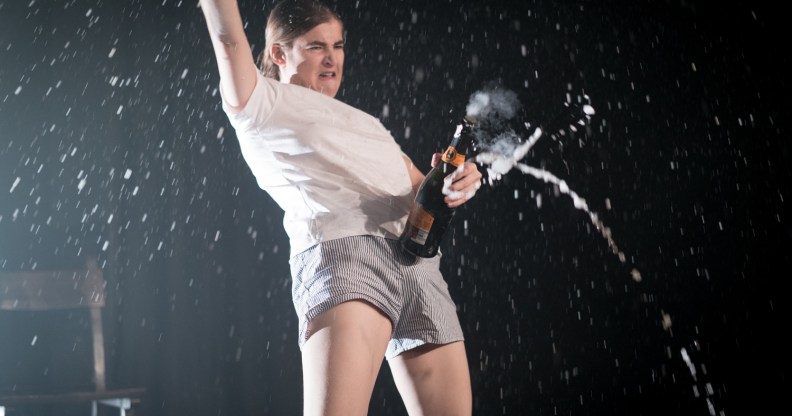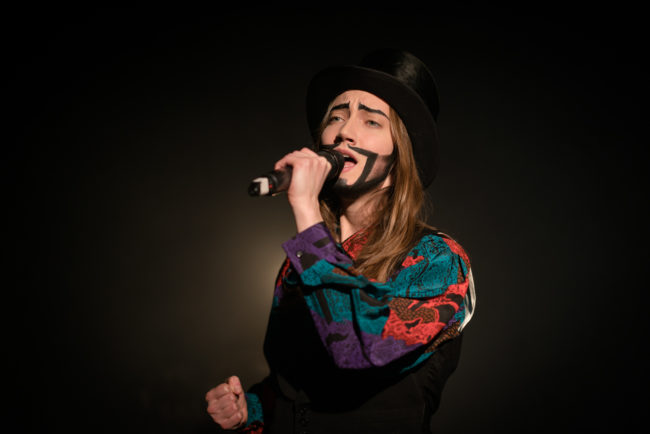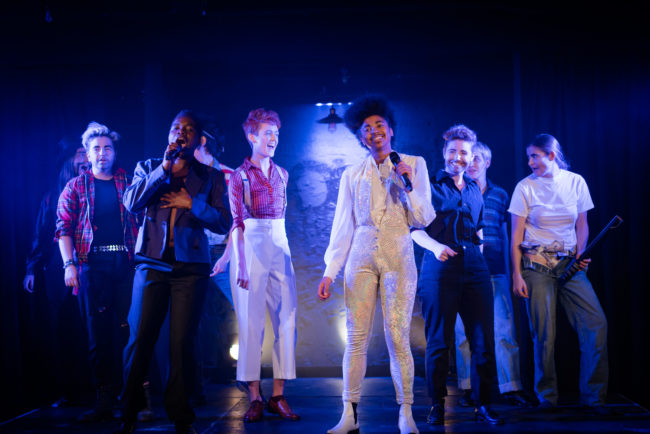Drag King group Pecs: ‘We get accused of celebrating the patriarchy’

Pecs is a drag king collective (Holly Lucas)
From performing in pokey nightclubs in San Francisco to strutting down glamorous walkways on cable television, drag queens have propelled their way into mainstream pop culture—but they are not the only ones performing gender.
Their regal counterparts—drag kings—are killing it too, only they’re not getting as big a share of the pie, they tell PinkNews.
“People see masculinity as neutral so they don’t think it’s worth performing,” John Travulva told PinkNews. “I was asked a lot, well what is that? Do you just wear trousers?”
As a drag king, Travulva and his fellow kings have faced rejection both from within and from outside the LGBT+ community.
On the one hand, they are targeted for celebrating masculinity.
“Performing masculinity in lesbian subculture is a really, really delicate matter,” Mr. Goldenballs said.
According to him, women—both feminists and lesbians—have taken issue with what they perceive as a celebration of patriarchy.

“It shouldn’t be a competition” says drag king Cesar Jentley (Holly Lucas)
On the other hand, Caesar Jently noted, kings are rejected by people outside the community who “will not accept or embrace” their performances.
But, Travulva argued, “masculinity is just as performative as femininity.”
He is proud of his beard, which he puts a lot of effort into. And that’s not the only thing he cares about.
“I put a lot of effort into d*cks that I use during a show and that’s an excellent process to go on.”
Jently argued that despite the obvious difference in appearance, being a drag king is very similar to being a drag queen and, therefore, just as valid.
“I feel like the similarities are fundamental and the differences are more aesthetic.
“We end up minimising our movements and that becomes really sexy, whereas a drag queen might vogue,” Jently continued, “which is obviously the most insane exaggeration of movements and will also be sexy.”
Travulva added: “If you really break it down, it’s all just performing gender and wearing what you want to wear in that moment. Right now I want to wear a beard. It’s hot.”
But rejection is not the only form of abuse kings face. Sometimes, it can be a lot more sinister.
“I feel like there are definitely people that I work with that get very, very, very sexualised as a drag king,” Travulva said. “And it can proliferate elsewhere.”

Drag king John Travulva (Holly Lucas)
The other kings agree.
“I‘ve had a lot of people thinking that they own my body,” Jently said.
This is not similar to the abuse drag queens face, Goldenballs added.
“People just feeling like they can just…grab you.”
The kings have huge admiration for queens. Their dancing is “sexy,” their makeup is “insane.” They are “so important.”

Drag king collective Pecs (Holly Lucas)
But drag kings are just as important. And rather than pit one against the other—as men and women are often pitted against one another—the kings wish that both could be celebrated as one of the same.
“We are asked to set ourselves in opposition to queening,” Jently said. “Clearly you can make that comparison. But so often we are being asked to justify ourselves or to say how we’re better. It shouldn’t be a competition.”

